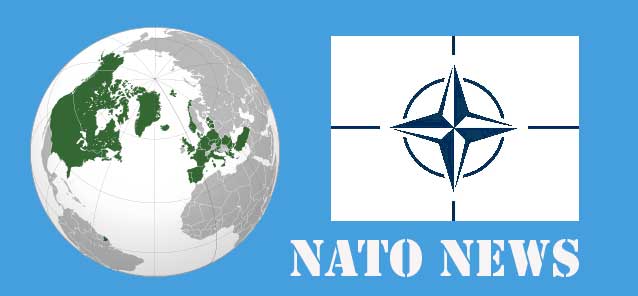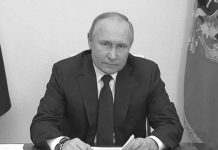OTTAWA – NEWS – Defence Minister Harjit S. Sajjan marked the end of the North Atlantic Treaty Organization (NATO) Defence Ministers’ Meeting in Brussels, Belgium. This two-day, in-person meeting allowed for detailed and extensive discussions with Canada’s Allies and partners, and contributed to the ongoing dialogue that is essential to the Alliance’s enduring success.
The Minister said, “The productive discussions from the last two days emphasized Canada’s commitment to keeping the transatlantic community safe and secure. While at NATO, I announced our government commitment to resettle up to an additional 322 NATO-Affiliated Afghan contractors and their immediate family members in Canada. We also had productive discussion on what all NATO Allies can do to advance the women, peace and security agenda and we endorsed the action plan to make real and lasting change across the alliance.
The investments that we are making in modern equipment and innovation through our fully costed defence policy, Strong, Secure, Engaged will strengthen NATO’s capacity to respond to evolving security challenges, including disruptive technologies, climate change, and harmful cyber activities. We must continue to strengthen our cooperation and interoperability, and build a more resilient Alliance.”
Minister Sajjan’s remarks addressed Operation ALLIED SOLACE, NATO’s mission to evacuate over 1,000 NATO-Affiliated Afghan contractors and their immediate family members from Kuwait and Qatar to temporary camps in Kosovo and Poland, and to resettle these individuals in Allied countries. Minister Sajjan announced that Canada will resettle up to an additional 322 NATO-Affiliated Afghans and their immediate family members, who must meet Canada’s admissibility requirements. This pledge is in addition to up to 150 NATO-Affiliated Afghans that we are in the process of resettling in Canada.
Throughout the meetings, Minister Sajjan emphasized Canada’s commitment to the NATO on several key issues, including:
- Reaffirming Canada’s commitment to the Alliance’s ongoing efforts to strengthen its deterrence and defence posture in light of the evolving security environment;
- Endorsing critical initiatives designed to lay the ground for the Madrid 2022 Summit and ensure the Alliance’s success over the next decade;
- Continuing strong support for ongoing efforts to coordinate the safe evacuation of NATO-Affiliated Afghans; and,
- Welcoming engagement with key partners such as Sweden, Finland, and the European Union to advance collaboration and coordination with NATO in responding to key geostrategic challenges, which affect all of us.
The Minister met with the NATO Secretary General, Jens Stoltenberg, and discussed the Alliance’s deterrence and defence posture, Afghanistan, NATO Mission Iraq, and cooperation with partners. The Minister also hosted a Defence Ministers’ meeting of Allies contributing to the NATO enhanced Forward Presence (eFP) Battle Group in Latvia. The meeting was an opportunity to demonstrate the Battle Group’s solidarity and reiterate the importance of the mission. In addition, the Minister met with Norway’s new Minister of Defence, Odd Roger Enoksen. During the meeting the Minister congratulated Minister Enoksen on his appointment, and discussed key bilateral cooperation items of interest, including the Arctic. Lastly, the Minister met with Denmark’s Minister of Defence, Trine Bramsen, to discuss bilateral defence cooperation and mutual defence areas of interest including the Arctic and NATO Mission Iraq (NMI).
NATO is a cornerstone of Canada’s international security policy, and we are committed to strengthening our relationships with NATO Allies and partners. Transatlantic unity is key to ensuring the safety and security of Canada and Allied nations, and to collectively addressing emerging threats.







